The Solar Prize Round 6 finalists have been announced. Ten teams were awarded $100,000 in cash and $75,000 in technical support vouchers, and are now moving on to the Go! Contest.
Finalist selection took place after the Set! Contest Demo Day on April 4, where the 20 semifinalists discussed their technologies with a panel of industry reviewers. The 10 teams that were chosen to move on to the Go! Contest will now work to produce a refined prototype and perform a pilot test of their innovation that was engineered to advance the solar industry.
Three teams were also awarded additional prizes in the Justice, Equity, Diversity and Inclusion (JEDI) Contest. This prize is optional and open to teams whose innovations include a solution that boosts underserved communities’ access to solar deployment.
The finalist teams moving on the last contest in Solar Prize Round 6 are as follows:
- Fliteworks (New York, NY): This team is developing software to automate drone piloting of solar site monitoring and enable site daily inspections. Automating monitoring can lower the cost of inspections, increase the frequency of inspections, and collect more data to improve the performance of solar farms.
- NC Solar Inverters (Cary, NC): This team is developing a new, low-cost inverter that combines efficient, older technology with new control techniques to create a fully sealed inverter design that uses natural cooling. This allows for higher reliability and performance for utility-scale solar compared to other inverters on the market.
- LEAF (Stow, OH): This team is developing a computer aided design (CAD) plugin that automates layout design of utility solar sites for solar engineers. This greatly decreases the manual redrawing of strings for each project, reducing labor hours and costs.
- Latimer Controls, Inc. (Boulder, CO): This team is developing an intelligent control software that enables utility-scale photovoltaic (PV) to provide power reliably and on demand. This will replace grid reliance on fossil fuels, drive higher profitability for PV operators, and generate revenue increases for solar asset owners with low capital cost.
- ReJoule's Second-Life Solar Team (Signal Hill, CA): This team is developing a fast, new method for testing the health of decommissioned electric vehicle (EV) batteries and using these batteries to develop an integrated solution for storing solar power and dispatching it at peak hours. This allows for fast screening of used batteries and certification for use in grid scale storage of solar energy.
JEDI Contest Winner - Snow-Free Solar (Toledo, OH): This team is developing a durable strip coating that is applied to the lower edge of solar panels to help shed snow. By shedding snow from panels in a quick and low-cost way, solar plants continue to operate efficiently year-round.
JEDI Contest Winner - RUTE Foundation Systems (Portland, OR): This team is developing a high-clearance single-axis tracker for PV systems meant to be integrated into active farmland (agrivoltaics). Using raised cables to stabilize and move the panels, this technology lowers costs and uses less steel than traditional agrivoltaic racking systems.
JEDI Contest Winner - Noria Energy (Sausalito, CA): This team is developing autonomous motors for floating solar, replacing traditional anchors and mooring systems. This simplifies installation and reduces cost, redundant engineering for each project, and diving teams needed for installation.
- Edgeli (Portland, ME): This team is developing a cloud-based, collaborative data and modeling platform for developers and utilities to use shared data, models, and maps to site and size solar energy projects. This software will result in faster approval times and fewer projects clogging the interconnection queue.
- Solesca (Chicago, IL): This team is developing a utility-scale solar design platform to help solar developers identify promising solar sites. Features of this platform include site filtering, community sentiment information, and a live collaboration tool.
Read the full announcement for more details on the Solar Prize and the Round 6 finalists.
Finalists will perform a pilot test ahead of the final Go! Contest Demo Day at the RE+ Conference in September 2023. At the conclusion of the Go! Contest, two teams will be named winners, each earning $500,000 in cash and additional support vouchers. Select teams may also be awarded additional funds through their participation in the JEDI Contest.
Congratulations to the finalists and good luck in the Go! Contest!

